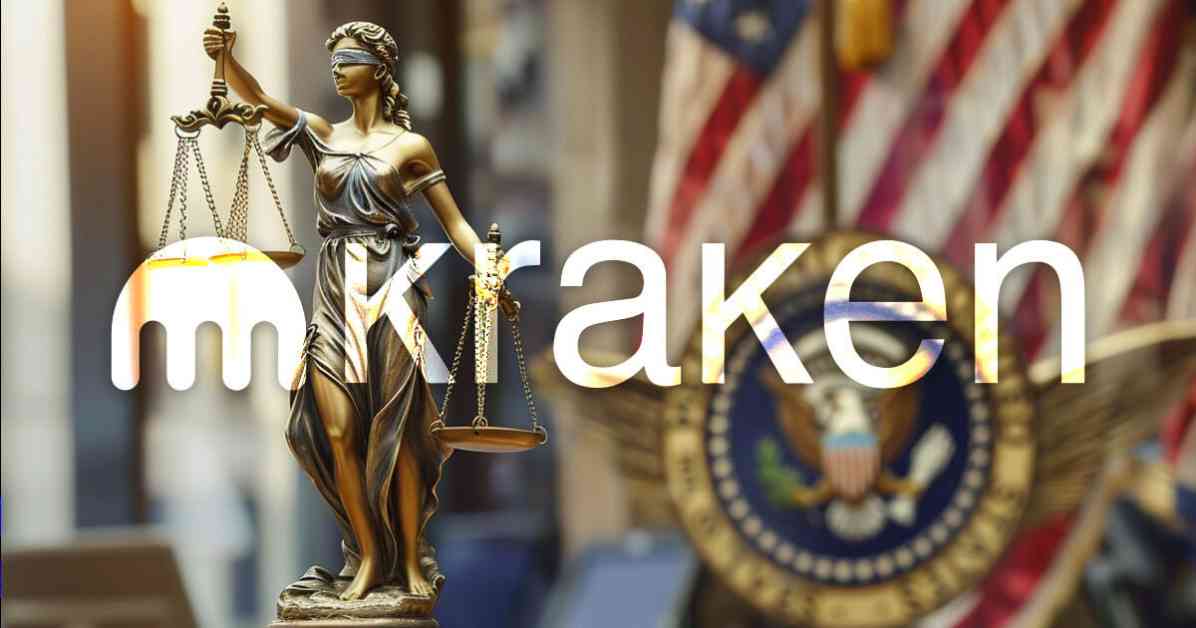Kraken, one of the leading cryptocurrency exchanges, finds itself embroiled in a legal battle with the US Securities and Exchange Commission (SEC) over allegations of operating an unregistered securities exchange. In response to the SEC’s lawsuit, Kraken has requested a jury trial, firmly denying any involvement in illicit activities. The exchange’s legal team has criticized the SEC’s approach to the crypto industry, highlighting their efforts to engage with the regulator, which they claim have been met with resistance.
Challenging the SEC’s Authority
Kraken’s defense centers on challenging the SEC’s authority to regulate their business under certain sections of the Securities Exchange Act. The exchange argues that digital assets traded on their platform do not qualify as securities or investment contracts, therefore, trading these assets does not violate the Exchange Act. Additionally, Kraken claims that the SEC failed to provide adequate notice that their actions were unlawful, violating the exchange’s due process rights.
In a bold move, Kraken has denied any illegal activity and questioned the SEC’s interpretation of digital assets as securities. The exchange has been vocal about the lack of clarity and fair notice regarding their obligations under the law, emphasizing that they lacked fair notice that their conduct was prohibited. This legal battle between Kraken and the SEC highlights the ongoing regulatory challenges faced by the crypto industry.
Kraken’s Request for a Jury Trial
Kraken’s decision to request a jury trial in response to the SEC’s lawsuit underscores the exchange’s commitment to defending itself against the allegations of operating an unregistered securities exchange. The move comes after a federal judge rejected Kraken’s bid to dismiss the case, signaling a protracted legal battle between the exchange and the regulatory body.
The exchange’s legal team has vehemently denied any wrongdoing and criticized the SEC’s handling of the situation. Kraken claims to have tried to work with the SEC to make registration feasible, but their efforts were met with resistance. The exchange argues that the SEC’s strategy of fighting for enforcement authority it does not have has hindered regulatory clarity in the crypto industry.
Disputing the SEC’s Claims
Kraken has disputed the SEC’s classification of certain digital assets traded on their platform as securities. The exchange claims that they were unaware of which digital assets the SEC considered “investment contracts” until the lawsuit was filed. Kraken has specifically mentioned ADA, ALGO, ATOM, FIL, FLOW, ICP, MANA, MATIC, NEAR, OMG, and SOL as the digital assets in question.
Furthermore, Kraken has challenged the SEC’s use of the term “crypto asset securities,” arguing that the courts have already rejected it. The exchange has emphasized that the digital assets traded on their platform do not carry the rights and obligations of traditional financial assets subject to SEC regulation. Kraken has firmly denied engaging in any illegal activity and remains steadfast in their defense against the SEC’s allegations.
The Regulatory Landscape for Crypto Assets
The legal battle between Kraken and the SEC sheds light on the complex regulatory landscape for crypto assets in the United States. The SEC’s attempts to classify certain digital assets as securities have been met with pushback from industry players like Kraken, who argue that such classifications lack legal basis. The lack of regulatory clarity and inconsistent enforcement actions have created challenges for crypto exchanges operating in the US.
The SEC’s role in regulating the crypto industry has been a subject of debate, with critics accusing the regulatory body of overreach and stifling innovation. The clash between Kraken and the SEC represents a broader struggle for regulatory clarity and a balanced approach to overseeing the rapidly evolving crypto market. The outcome of this legal battle could have far-reaching implications for how digital assets are regulated in the US.
The Importance of Due Process Rights
Kraken’s assertion that the SEC failed to provide adequate notice of their alleged violations highlights the importance of due process rights in regulatory enforcement actions. The exchange’s legal team has argued that the lack of clarity and fair notice regarding their obligations under the law has impeded their ability to comply with regulatory requirements.
Due process rights ensure that individuals and entities are given a fair opportunity to defend themselves against allegations of wrongdoing. Kraken’s defense against the SEC’s lawsuit underscores the significance of due process in upholding the rule of law and protecting the rights of those subject to regulatory scrutiny.
Industry Collaboration and Regulatory Engagement
The legal battle between Kraken and the SEC also raises questions about the need for greater collaboration and engagement between industry players and regulatory authorities. Kraken’s attempts to work with the SEC to address regulatory concerns demonstrate a willingness to engage constructively with regulators.
However, the exchange’s claims of resistance and stonewalling from the SEC highlight the challenges faced by crypto exchanges seeking to operate within the bounds of regulatory compliance. Industry collaboration and regulatory engagement are essential for fostering a regulatory environment that promotes innovation while ensuring investor protection and market integrity.
Looking Ahead: The Future of Crypto Regulation
As the legal battle between Kraken and the SEC unfolds, it will be crucial to monitor the implications for the broader crypto industry and the regulatory landscape in the US. The outcome of this case could set a precedent for how digital assets are classified and regulated by the SEC, shaping the future of crypto regulation in the country.
The clash between Kraken and the SEC underscores the need for clear and consistent regulatory guidance for crypto exchanges and market participants. As the crypto industry continues to grow and evolve, regulatory clarity and collaboration between industry players and regulators will be essential for fostering a thriving and compliant market environment.
In conclusion, the legal battle between Kraken and the SEC over allegations of operating an unregistered securities exchange highlights the challenges faced by crypto exchanges in navigating the complex regulatory landscape. Kraken’s defense against the SEC’s lawsuit underscores the importance of due process rights and regulatory clarity in upholding the rule of law in the crypto industry. As this legal battle continues to unfold, the implications for the broader regulatory environment and the future of crypto regulation in the US remain uncertain.

















